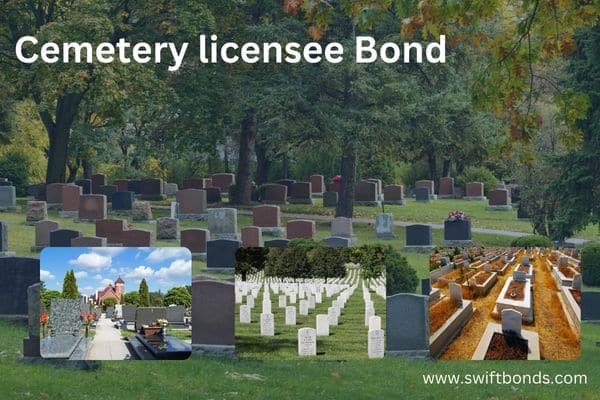Introduction
When it comes to applying for a license, permit, or any formal certification, having the correct documentation is crucial. The phrase "Essential Documentation You'll Need for a Successful Application" resonates deeply with anyone who has navigated these waters. Whether you’re an aspiring contractor, entrepreneur, or an individual seeking professional recognition, your application’s success often hinges on the documents you present. This article will delve into the various types of essential documentation required for a successful application in different contexts, with an emphasis on contractor licensing and the significance of a contractor license bond.
Essential Documentation You'll Need for a Successful Application
The journey toward obtaining any form of official approval starts with understanding what you need to include in your application. For contractors, this process is particularly nuanced. A contractor license bond serves as an essential safeguard that not only protects clients but also bolsters your credibility as a professional in the industry.
Understanding Contractor License Bonds
What Is a Contractor License Bond?
A contractor license bond is essentially a promise made by a bonding company to ensure that a contractor will adhere to local laws and regulations when carrying out their work. If they fail to do so, the bond can be used to compensate any damages incurred by clients.
Why Is It Necessary?
Having a contractor license bond is often mandated by law in many states and municipalities. It demonstrates accountability and assures potential clients that you are serious about your business practices.
How to Obtain One
To secure a contractor license bond, you typically need to apply through a surety company. They will evaluate your financial stability and business practices before issuing the bond.
Key Documents Required for Contractor Licensure
1. Application Form
The most basic yet critical document is the application form itself. Ensure all sections are filled out accurately.
- Tip: Double-check that all personal details match your identification.
2. Proof of Identity
Identification is paramount—this includes:
- Government-issued ID Social Security Number (SSN)
Confirming your identity helps prevent fraud and establishes trustworthiness.
3. Proof of Experience
You’ll need to demonstrate relevant experience in contracting work:
- Work history References from past employers or clients Portfolio showcasing completed projects
This documentation reinforces your capability as a professional.
4. Educational Credentials
Depending on state regulations, educational credentials may be required:
- Diplomas or degrees related to construction management Certifications from trade associations
These documents further validate your qualifications.
Financial Documentation
5. Credit Report
Most licensing boards require a credit report as part of the evaluation process:
- A good credit score signals financial responsibility.
Be prepared to explain any discrepancies found in your report.
6. Bank Statements
Often requested are recent bank statements that verify financial stability:
- Typically last three months’ statements.
These documents provide insight into your fiscal habits.
Insurance Requirements
7. General Liability Insurance Proof
Providing proof of general liability insurance protects you from lawsuits stemming from accidents or damage during projects:
- Minimum coverage amounts differ by state.
This understanding performance bonds insurance is often non-negotiable when applying for licenses.
8. Workers' Compensation Insurance Proof
If you employ workers, you must show evidence of workers’ compensation insurance:
- This covers medical costs arising from workplace injuries.
It’s essential not only for compliance but also for safeguarding your employees' welfare.
Business Structure Documentation
9. Business License or Registration Documents
If you're operating under a business name, you'll need these documents:
- Articles of incorporation (if applicable)
Ensure all records are up-to-date and filed correctly with local authorities.
10. Operating Agreements (for LLCs)
For Limited Liability Companies (LLCs), an operating agreement outlines ownership and management structure:
- This document can clarify roles and responsibilities among partners.
It's crucial for both transparency and legal frameworks within partnerships.
Regulatory Compliance Documents
11. Zoning Permits (if applicable)
In certain cases, zoning permits may be necessary if you're establishing operations in specific areas:
- Confirm current zoning regulations before applying.
Failing to comply could delay or jeopardize your application process.
Frequently Asked Questions (FAQs)
1. What happens if I don’t have all my documentation?
Without complete documentation, your application may be delayed or outright denied due to non-compliance with regulatory standards.
2. Can I apply without prior experience?
Experience requirements vary; some jurisdictions allow applicants to demonstrate alternative qualifications such as apprenticeships or relevant education.

3. How long does it take to obtain my contractor license?
Processing times differ significantly based on location but generally range from weeks to several months once all documents are submitted correctly.
4. Are there fees associated with obtaining bonds?
Yes, securing bonds usually incurs fees based on various factors like creditworthiness and project size—always inquire beforehand!
5. What if I have bad credit?
Having poor credit may complicate obtaining bonds but doesn’t necessarily disqualify you; additional security measures might be required instead.
6. Do I need insurance even if I’m working alone?
Yes! Even solo contractors should maintain general liability insurance as protection against unforeseen incidents while working on projects.
Conclusion
Navigating through the myriad requirements involved in acquiring licensure can feel daunting at first glance; however, understanding "Essential Documentation You'll Need for a Successful Application" simplifies this complex process immensely! By gathering each necessary document—from proof of identity and experience to securing essential protections like the contractor license bond—you’ll position yourself favorably within competitive markets while ensuring compliance with local laws and regulations efficiently!
Remember: preparation is key! Taking proactive steps now will not only facilitate smoother applications but also support future growth within this rewarding field!